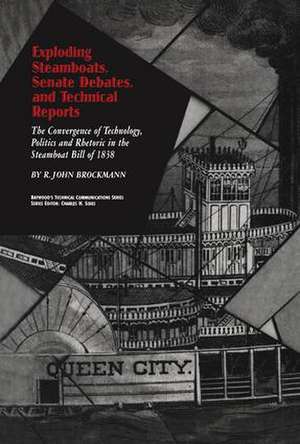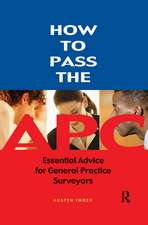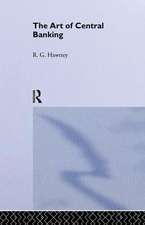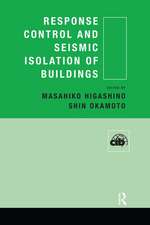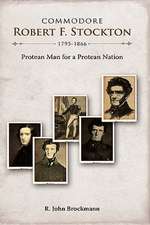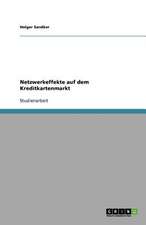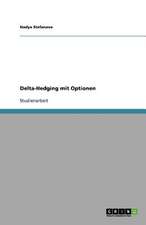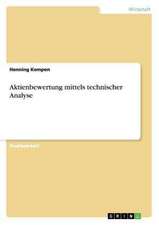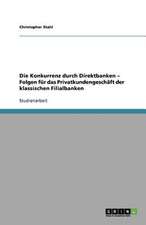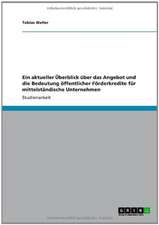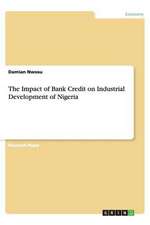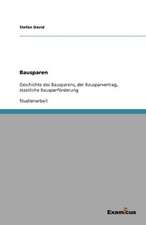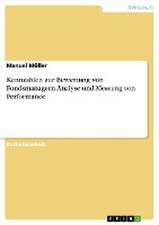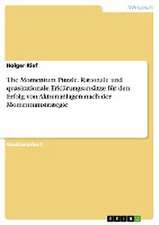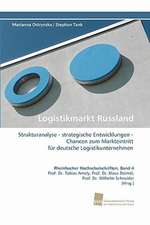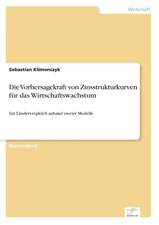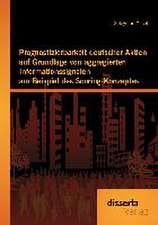Exploding Steamboats, Senate Debates, and Technical Reports: The Convergence of Technology, Politics, and Rhetoric in the Steamboat Bill of 1838: Baywood's Technical Communications
Autor R. John Brockmannen Limba Engleză Paperback – 21 ian 2019
Din seria Baywood's Technical Communications
- 5%
 Preț: 330.56 lei
Preț: 330.56 lei - 5%
 Preț: 496.09 lei
Preț: 496.09 lei - 23%
 Preț: 414.24 lei
Preț: 414.24 lei - 5%
 Preț: 451.31 lei
Preț: 451.31 lei - 14%
 Preț: 318.90 lei
Preț: 318.90 lei - 17%
 Preț: 331.25 lei
Preț: 331.25 lei - 12%
 Preț: 333.67 lei
Preț: 333.67 lei - 18%
 Preț: 1056.80 lei
Preț: 1056.80 lei - 15%
 Preț: 639.47 lei
Preț: 639.47 lei - 25%
 Preț: 415.11 lei
Preț: 415.11 lei - 5%
 Preț: 392.32 lei
Preț: 392.32 lei - 25%
 Preț: 540.68 lei
Preț: 540.68 lei - 26%
 Preț: 442.64 lei
Preț: 442.64 lei - 5%
 Preț: 453.13 lei
Preț: 453.13 lei - 5%
 Preț: 496.09 lei
Preț: 496.09 lei - 5%
 Preț: 338.37 lei
Preț: 338.37 lei - 5%
 Preț: 453.33 lei
Preț: 453.33 lei - 26%
 Preț: 820.32 lei
Preț: 820.32 lei - 5%
 Preț: 458.23 lei
Preț: 458.23 lei -
 Preț: 422.59 lei
Preț: 422.59 lei - 26%
 Preț: 819.90 lei
Preț: 819.90 lei - 17%
 Preț: 639.77 lei
Preț: 639.77 lei -
 Preț: 479.09 lei
Preț: 479.09 lei - 5%
 Preț: 450.02 lei
Preț: 450.02 lei - 18%
 Preț: 721.16 lei
Preț: 721.16 lei -
 Preț: 356.18 lei
Preț: 356.18 lei -
 Preț: 489.00 lei
Preț: 489.00 lei - 23%
 Preț: 489.55 lei
Preț: 489.55 lei - 17%
 Preț: 298.99 lei
Preț: 298.99 lei - 15%
 Preț: 638.95 lei
Preț: 638.95 lei - 57%
 Preț: 421.16 lei
Preț: 421.16 lei - 50%
 Preț: 365.39 lei
Preț: 365.39 lei
Preț: 455.08 lei
Preț vechi: 479.03 lei
-5% Nou
Puncte Express: 683
Preț estimativ în valută:
87.08€ • 91.16$ • 72.05£
87.08€ • 91.16$ • 72.05£
Carte tipărită la comandă
Livrare economică 05-19 aprilie
Preluare comenzi: 021 569.72.76
Specificații
ISBN-13: 9780415404112
ISBN-10: 0415404118
Pagini: 158
Dimensiuni: 152 x 229 x 9 mm
Greutate: 0.22 kg
Ediția:1
Editura: Taylor & Francis
Colecția Routledge
Seria Baywood's Technical Communications
Locul publicării:Oxford, United Kingdom
ISBN-10: 0415404118
Pagini: 158
Dimensiuni: 152 x 229 x 9 mm
Greutate: 0.22 kg
Ediția:1
Editura: Taylor & Francis
Colecția Routledge
Seria Baywood's Technical Communications
Locul publicării:Oxford, United Kingdom
Public țintă
Professional Practice & DevelopmentCuprins
CHAPTER 1. Steamboat Politics and Steamboat Society
New York Harbor, May 15, 1824, 7:00 PM
Four Days Later—Washington City, May 19, 1824
CHAPTER 2. Steamboat Technology
High-Pressure Steam Engines and Hulls that Ride On the Water
What Could Go Wrong with the Boiler Technology
Problems Operating a Problem-Prone Technology
February 24, 1830, Memphis Tennessee, Early Morning
Washington City, May 4, 1830—Two and a Half Months Later
CHAPTER 3. Steamboats, The Presidency, and Public Opinion
Red River, May 19, 1833, Early on a Spring Sunday Morning
December 3, 1833—President Jackson’s State of the Union Message to Congress
But What About the Public Pressure for Steamboat Safety?
The Franklin Institute Reports—A Reasoned Technical Response to Catastrophe
Traditional Technical Writing of the Era—Communications Received by the Committee of
the Franklin Institute on the Explosion of Steam Boilers (1832)
Report of the Committee of the Franklin Institute of the State of Pennsylvania for the
Promotion of the Mechanic Arts, on the Explosions of Steam-Boilers, Part I, Containing
the First Report of Experiments Made by the Committee for the Treasury Department of
the U. States (1836)
General Report on the Explosions of Steam-Boilers by a Committee of the Franklin Institute
of the State of Pennsylvania for the Promotion of the Mechanic Arts (1837)
Report of the Committee of the Franklin Institute of the State of Pennsylvania for the
Promotion of the Mechanic Arts, on the Explosions of Steam-Boilers Made at the
Request of the Treasury Department of the United States, Part II, Containing the Report
of the Sub-Committee to Whom Was Referred the Examination of the Strength of
Materials Employed in the Construction of Steam Boilers (1837)
Contemporaneous Reactions to the Institute Reports in the Scientific Community: Hales’s
Open Letter to Grundy, Locke’s Cincinnati Report, and Steam Textbooks by Renwick
and Ward
Contemporaneous Reactions to Institute’s Reports by Those Most Directly Involved:
Steamboat Inspectors, Engineers, and Firemen
The Gold Dust Fire
Chapter 37. The End of the “Gold Dust”
Chapter 20. A Catastrophe
CHAPTER 4. Steamboat Politics and Rhetoric
May 11, 1837, Thirty Miles South of Natchez
A Brief Coincidence of Political Interests
The Select Committee
The Initial Proposed Bill in December 1837
The Bill Reported Out of Committee
CHAPTER 5. The Law Didn’t Work
GLOSSARY
APPENDIX 1. Comparing the Four Legislative Attempts
INDEX
New York Harbor, May 15, 1824, 7:00 PM
Four Days Later—Washington City, May 19, 1824
CHAPTER 2. Steamboat Technology
High-Pressure Steam Engines and Hulls that Ride On the Water
What Could Go Wrong with the Boiler Technology
Problems Operating a Problem-Prone Technology
February 24, 1830, Memphis Tennessee, Early Morning
Washington City, May 4, 1830—Two and a Half Months Later
CHAPTER 3. Steamboats, The Presidency, and Public Opinion
Red River, May 19, 1833, Early on a Spring Sunday Morning
December 3, 1833—President Jackson’s State of the Union Message to Congress
But What About the Public Pressure for Steamboat Safety?
The Franklin Institute Reports—A Reasoned Technical Response to Catastrophe
Traditional Technical Writing of the Era—Communications Received by the Committee of
the Franklin Institute on the Explosion of Steam Boilers (1832)
Report of the Committee of the Franklin Institute of the State of Pennsylvania for the
Promotion of the Mechanic Arts, on the Explosions of Steam-Boilers, Part I, Containing
the First Report of Experiments Made by the Committee for the Treasury Department of
the U. States (1836)
General Report on the Explosions of Steam-Boilers by a Committee of the Franklin Institute
of the State of Pennsylvania for the Promotion of the Mechanic Arts (1837)
Report of the Committee of the Franklin Institute of the State of Pennsylvania for the
Promotion of the Mechanic Arts, on the Explosions of Steam-Boilers Made at the
Request of the Treasury Department of the United States, Part II, Containing the Report
of the Sub-Committee to Whom Was Referred the Examination of the Strength of
Materials Employed in the Construction of Steam Boilers (1837)
Contemporaneous Reactions to the Institute Reports in the Scientific Community: Hales’s
Open Letter to Grundy, Locke’s Cincinnati Report, and Steam Textbooks by Renwick
and Ward
Contemporaneous Reactions to Institute’s Reports by Those Most Directly Involved:
Steamboat Inspectors, Engineers, and Firemen
The Gold Dust Fire
Chapter 37. The End of the “Gold Dust”
Chapter 20. A Catastrophe
CHAPTER 4. Steamboat Politics and Rhetoric
May 11, 1837, Thirty Miles South of Natchez
A Brief Coincidence of Political Interests
The Select Committee
The Initial Proposed Bill in December 1837
The Bill Reported Out of Committee
CHAPTER 5. The Law Didn’t Work
GLOSSARY
APPENDIX 1. Comparing the Four Legislative Attempts
INDEX
Descriere
By 1838, over two thousand Americans had been killed and many hundreds injured by exploding steam engines on steamboats. After calls for a solution in two State of the Union addresses, a Senate Select Committee met to consider an investigative report from the Franklin Institute of Philadelphia. This work covers this topic.
